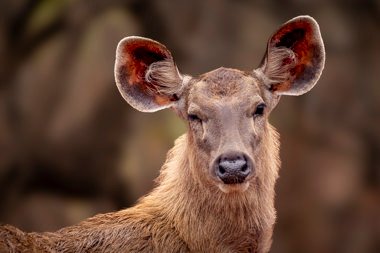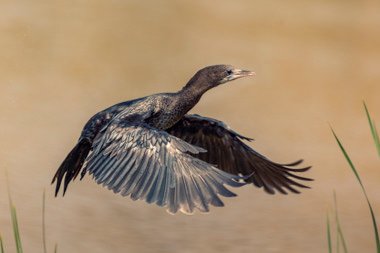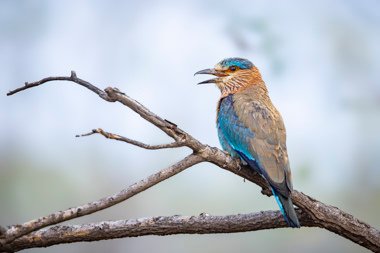10 days – with
Manpreet Sokhi
March 14 to 23, 2026
SOLD OUT
India is a land of vibrant contrasts – a place where ancient traditions blend seamlessly with modern life, where bustling cities give way to beautiful landscapes, and where every corner tells a story.
For a Western traveler, stepping into India is like stepping into another world—one filled with rich culture, breathtaking scenery, and a deep connection to history. But beyond its temples, markets, and colorful festivals, India is home to some of the most extraordinary wildlife on the planet.
And at the heart of this wild beauty is the Bengal tiger—one of the most elusive and majestic creatures on Earth. There’s nothing quite like the thrill of spotting a tiger in its natural habitat—its piercing gaze locking onto yours, its powerful form moving silently through the dense jungle. Photographing these magnificent cats isn’t just about capturing an image—it’s about witnessing raw nature at its finest.
Venture deep into India’s premier Tiger Reserves over 10 exhilarating days, guided by expert local trackers on 10 immersive safaris. Every moment holds the anticipation of a once-in-a-lifetime encounter, making this the ultimate Bengal Tiger Adventure. Are you ready to step into their world?
Join World Photographic Cup Team Canada photographers Dee Potter and Manpreet Sokhi on an epic photo adventure designed to help you capture the most portfolio-worthy wildlife images of your life.
Dee, a Canadian nature photographer and top ten finalist at the 2025 World Photographic Cup, is a dedicated mentor, leading workshops and tours to inspire photographers and refine their craft. Manpreet, marking his second time on the elite Team Canada, brings deep knowledge of wildlife photography along with India’s customs, language, and way of life, having spent half his life there before moving to Canada.
With their combined expertise, you’ll have the perfect support system to create your own breathtaking wildlife and nature photographs.

Experience staying in a treehouse. A very special experience awaits you at Pench. We will have reservations at a wildlife resort where you will be staying in luxury treehouses. This is unlike any other. Only 20 minutes from the Park gates, snuggled in 40 acres of old growth forest, the Pench Tree Lodges keep their carbon footprint to a bare minimum.
Pench National Park – the playground of Mowgli. The lush and picturesque landscape of Pench national park (then known as Seoni Jungle) are said to have inspired Sir Rudyard Kipling to write “The Jungle Book”. Spread over an area of 1200 sq. kms, it is home to tigers, Indian leopards, Sloth bears, several varieties of spotted deer, nilgais, sambhar, chinkara, etc, wild dogs, gaurs, and not to forget Kipling’s adoptive family for Mowgli – the wolves. Some of the birds that may be seen here are Crested Bunting, Painted Stork, White naped woodpecker, Jungle Owlet, River Terns, Grey Headed Fish Eagle
Stay at the Waghoba Eco-Lodge. This lodge has set new standards in eco-friendliness and conscious luxury. Handmade Adobe bricks, Guna vault roof tiles, stone and broken ceramics lend it a rustic yet deluxe look. After a delicious lunch prepared from vegetables grown organically in their own gardens.
Tadoba National Park – In the last decade, Tadoba National Park has come up as amongst the best destinations to see Tigers in the wild and is rated among the top parks for Tiger Safari in India. Tadoba National Park features a dry deciduous forest dominated by teak and bamboo trees, interspersed with grasslands. This vegetation allows for better visibility and excellent wildlife sightings. Despite being a dry forest, Tadoba has several lakes and rivers that provide abundant water sources for the park.
The mammal highlights at Tadoba Tiger Reserve, spread across an expansive landscape of 1727 Sq.km, are Tiger, Leopard, Wild Dogs & Indian Gaur, and bird life including Crested hawk eagle, Crested serpent eagle, Indian peafowl

 For more than 35 years, Manpreet has been a professional photographer working in India as well as Canada. Besides receiving many accolades and awards from the Professional Photographers of Canada, he also represented Canada at the World Photography Cup in 2023 as well as 2025
For more than 35 years, Manpreet has been a professional photographer working in India as well as Canada. Besides receiving many accolades and awards from the Professional Photographers of Canada, he also represented Canada at the World Photography Cup in 2023 as well as 2025
He is passionate about wildlife and landscape photography and has in depth knowledge of post processing which he teaches to other keen photographers
Having spent half his life in India before calling Canada his home, he loves sharing his Indian experiences.
















10 Days (9 Nights)
6 Guests *
2 Wildlife Tiger Reserves
10 Safaris
SOLD OUT
As you walk out of Indira Gandhi International Airport, there will be a car waiting to take you to our stay just 4.5 kms away. Roseate House New Delhi is a contemporary upscale 5 star hotel in the capital’s only hospitality district, Aerocity. The day is free to relax and meet up with your hosts Dee & Manpreet who will lead the tour and also be introduced to the other guests.
After an early morning breakfast, you will be driven to the airport for an hour and half flight to Nagpur and then by road (3 hours drive) to the Pench Treehouse Lodge
A very special experience awaits you at Pench. We will have reservations at a wildlife resort where you will be staying in luxury treehouses. This is unlike any other. Only 20 minutes from the Park gates, snuggled in 40 acres of old growth forest, the Pench Tree Lodges keep their carbon footprint to a bare minimum.
This evening you have the option to sit in the luxury hide and photograph birds at their eye level
After a delicious meal we will retire for the night after making sure that our cards are formatted, batteries charged and the gear is ready for the morning
Our day will start rather early and after a quick tea / coffee, we head out to the game drives looking for wildlife with our experienced guides. A few hours later we will stop for our packed picnic breakfast. We will head back to the lodge at 11 am where our gourmet lunch will be waiting. After lunch and a bit of relax time we head back for our afternoon safari till sunset. Dinner at the lodge
Post breakfast we drive to Tadoba about 5 hours away, where we will stay at the Waghoba Eco-Lodge. This lodge has set new standards in eco-friendliness and conscious luxury. Handmade Adobe bricks, Guna vault roof tiles, stone and broken ceramics lend it a rustic yet deluxe look. After a delicious lunch prepared from vegetables grown organically in their own gardens.
We have three days of morning and afternoon safaris where we will be tracking tigers with some of the best guides
As all good things come to an end, so does this adventure. But you would have had an amazing time, learnt a whole lot and made some new friends. Plus memory cards and hard drives with pictures to remind you of every moment of this trip
We drive to Nagpur to catch our flight to Delhi
As all good things come to an end, so does this adventure. But you would have had an amazing time, learnt a whole lot and made some new friends. Plus memory cards and hard drives with pictures to remind you of every moment of this trip
We drive to Nagpur to catch our flight to Delhi